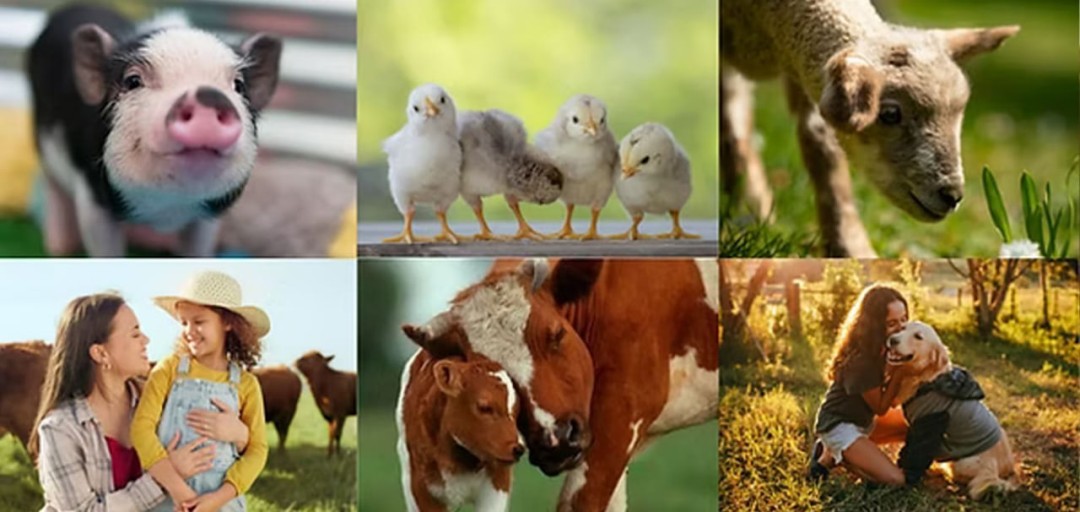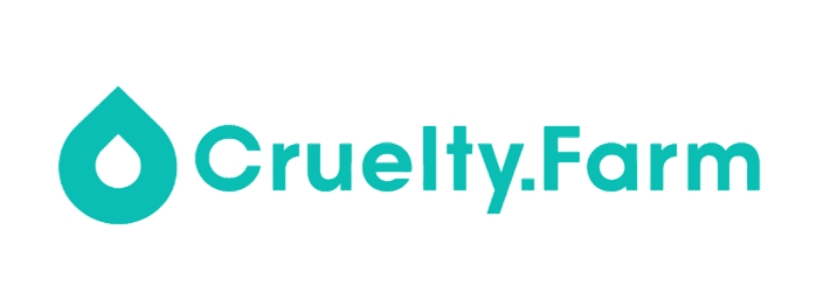June 20, 2025 - In the face of accelerating climate crises, rising chronic diseases, and growing concern for animal welfare, the vegan diet has emerged not as a trend—but as a powerful and transformative solution. Rooted in compassion, backed by science, and aligned with the planet’s urgent needs, a vegan lifestyle offers an intersectional answer to three of the most pressing challenges of our time: human health, animal suffering, and environmental collapse.
The global food system is undergoing a seismic shift. From professional athletes and nutritionists to climate scientists and everyday families, people are re-evaluating what's on their plates—and for good reason.

1. The Health Case: Better Nutrition, Lower Risk, Longer Life
Over the past decade, an overwhelming number of peer-reviewed studies have shown that plant-based diets can reduce the risk of some of the most common and deadly diseases. A well-planned vegan diet, rich in whole plant foods like legumes, fruits, vegetables, nuts, seeds, and whole grains, offers a powerhouse of nutrients without the drawbacks associated with animal products.
• Cardiovascular Health
Heart disease is still the number one cause of death worldwide. Vegan diets have been shown to significantly reduce LDL ("bad") cholesterol, improve blood pressure, and reduce arterial plaque. Studies from Harvard and the American Heart Association indicate that people on plant-based diets have up to a 32% lower risk of heart disease.
• Diabetes Prevention and Management
A fiber-rich, low-fat vegan diet can enhance insulin sensitivity and help regulate blood sugar levels. Research published in the journal Diabetes Care found that vegans have a 49–78% lower risk of type 2 diabetes compared to omnivores.
• Weight Management and Gut Health
Vegan diets naturally support a healthier body mass index (BMI). Since plant-based foods are lower in calories but more satiating, they prevent overeating while fueling the body with clean energy. In addition, the fiber in plant foods supports a diverse and thriving gut microbiome—now recognized as a cornerstone of immune and mental health.
• Cancer Risk Reduction
The World Health Organization has classified processed meats as carcinogenic and red meats as probably carcinogenic. Conversely, a diet rich in antioxidants, phytochemicals, and fiber—found abundantly in plant foods—can reduce the risk of several cancers, including colorectal, breast, and prostate cancers.
Mental and Emotional Well-Being
Emerging evidence suggests a strong link between plant-based diets and mental health. Diets low in saturated fats and rich in micronutrients like folate, magnesium, and B-vitamins are associated with lower rates of depression, anxiety, and cognitive decline.
2. The Ethical Case: Reducing Animal Suffering, One Meal at a Time
Most people say they love animals—but few realize the scale of cruelty involved in producing meat, dairy, and eggs. Factory farming, which produces over 90% of the world’s animal products, subjects billions of animals each year to short, painful, and confined lives. Animals like pigs, chickens, cows, and fish are routinely subjected to tail-docking, beak-searing, overcrowding, and early slaughter—all for the sake of efficiency and profit.
-
Pigs are kept in gestation crates so small they cannot turn around.
-
Chickens are bred to grow so fast their legs collapse under their own weight.
-
Calves are separated from their mothers within hours to produce dairy.
-
Fish suffer prolonged deaths through asphyxiation or live gutting.
Choosing a vegan diet is a vote against these systems. It is a way to align personal values with daily actions, reducing demand for industries built on cruelty. Each vegan saves approximately 200 animals per year from suffering and death.
More than just avoiding harm, veganism affirms a belief in justice and empathy across species lines.
3. The Environmental Case: Eating for a Livable Planet
The environmental cost of animal agriculture is staggering. According to the United Nations Food and Agriculture Organization (FAO), livestock farming is responsible for:
-
14.5–18% of global greenhouse gas emissions—more than the entire transport sector.
-
Massive deforestation, especially in the Amazon, where land is cleared for cattle grazing and soy production (most of which feeds livestock).
-
Widespread water contamination due to manure runoff and fertilizer use.
-
Up to 80% of global agricultural land use despite producing only a fraction of the world’s calories and protein.
Switching to a vegan diet is one of the most effective individual actions a person can take to fight climate change. According to Oxford University, eliminating meat and dairy from your diet could reduce your carbon footprint from food by up to 73%.
Other benefits include:
-
Saving 1.3 million liters of water per person per year.
-
Preserving 1000 m² of forest annually.
-
Protecting endangered species by preventing habitat loss.
4. A Cultural Shift with Global Momentum
What was once considered extreme is now becoming mainstream. The rise of veganism is fueled by an unprecedented availability of alternatives: from oat milk and plant-based meats to gourmet vegan restaurants and ready-made meals. Public awareness campaigns, documentaries, and social media movements have also played a pivotal role in educating and empowering the public.
Even governments and institutions are responding:
-
Public schools are incorporating plant-based menus.
-
Doctors are recommending diet change as treatment.
-
Cities like New York and Berlin are promoting plant-based living for public health.
From Olympic athletes to climate activists, the message is clear: plant-based living is the future.
How to Begin
Adopting a vegan lifestyle doesn't have to happen overnight. It can begin with small changes—like meatless Mondays, replacing dairy with plant milk, or exploring new vegan recipes. Support is readily available online, through community groups, mobile apps, and plant-based guides.
Resources to explore:
Conclusion: The Diet That Does It All
A vegan diet is not only about personal health—it’s a profound act of compassion, environmental responsibility, and global consciousness. It’s a lifestyle that nurtures life at every level, from the cellular to the planetary.
In a world craving healing, peace, and sustainability, what we choose to eat has never mattered more.
Let food be your message. Let food be your medicine. Let food be your legacy.
Media Contact
Company Name: Humane Foundation
Contact Person: Ali Roghani
Email: Send Email
Address:27 Old Gloucester Street
City: London
State: England
Country: United Kingdom
Website: https://cruelty.farm/





